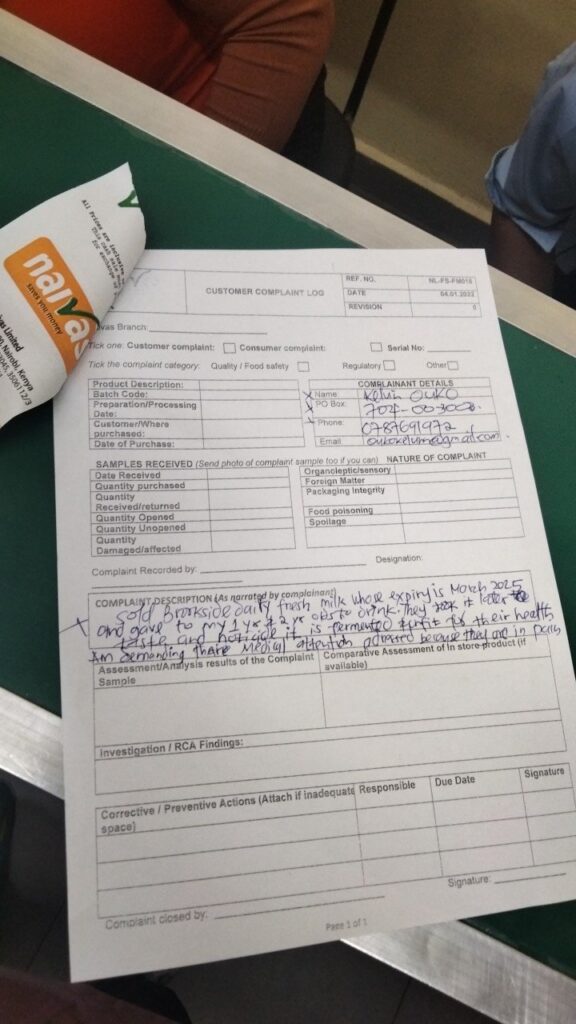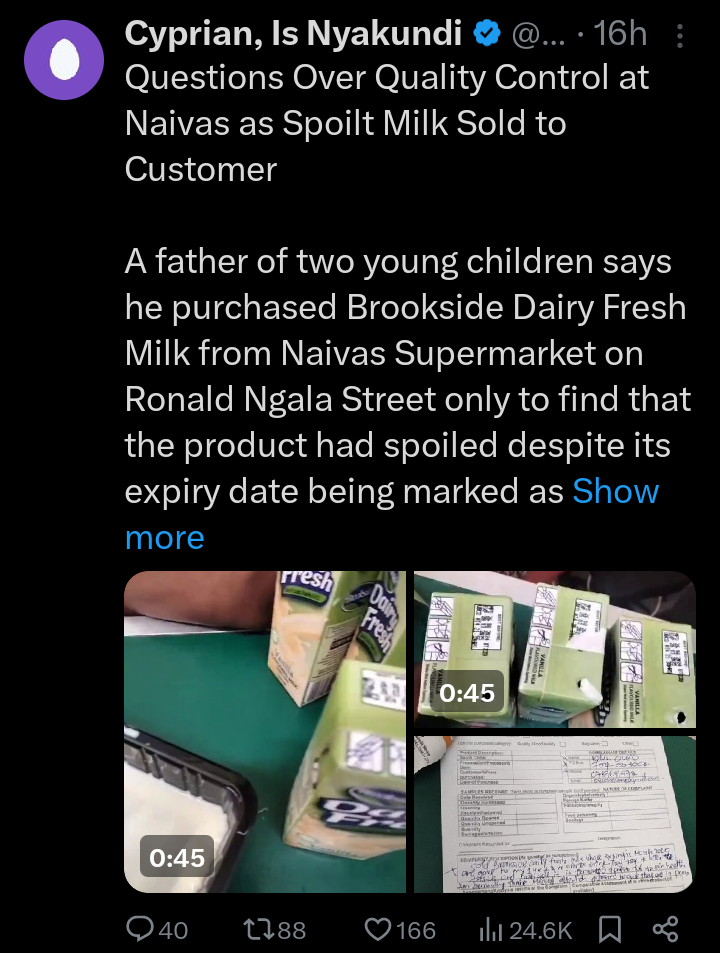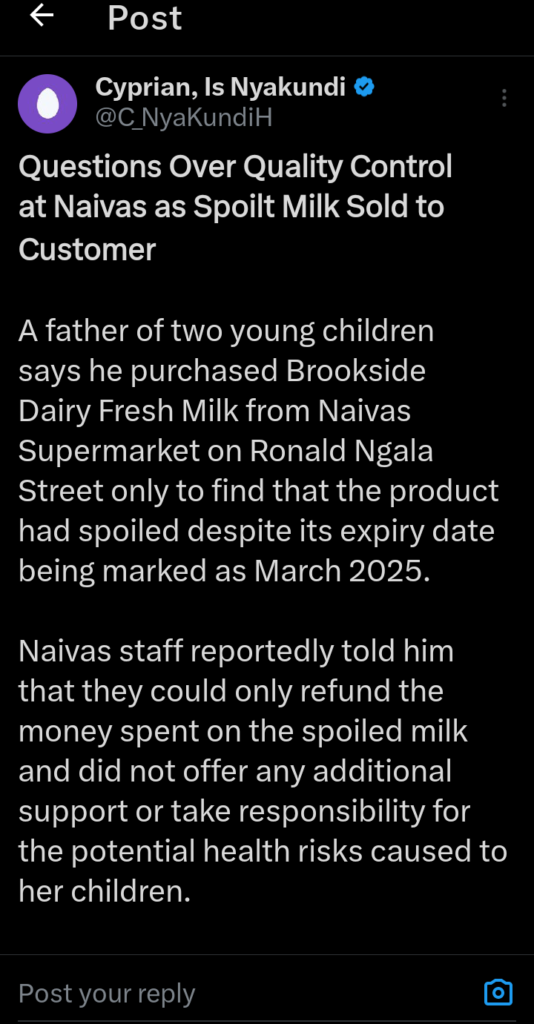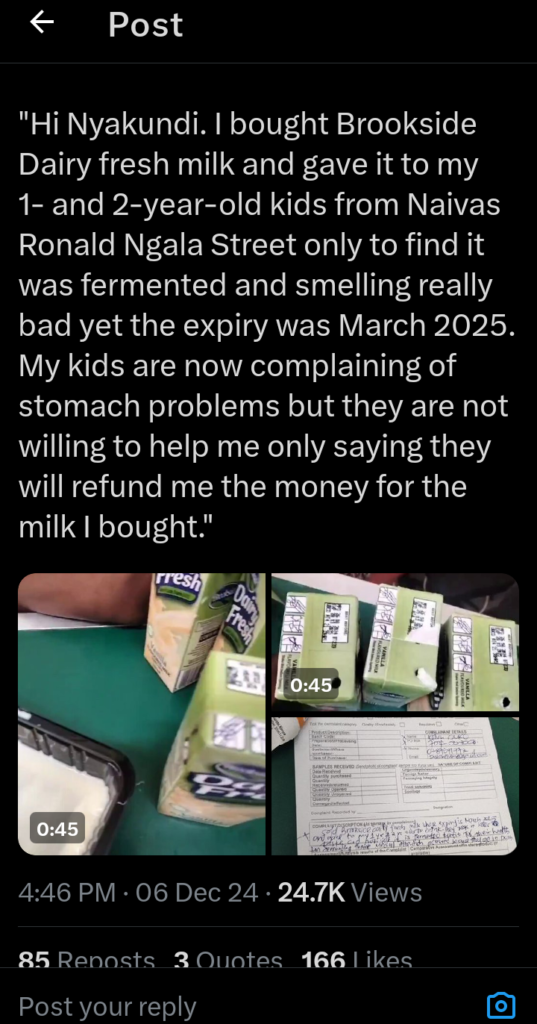A concerning incident at Naivas Supermarket has raised serious questions about both the supermarket’s quality control practices and the oversight of the dairy products it sells.
A father of two young children recently shared his experience after purchasing Brookside Dairy Fresh Milk from Naivas on Ronald Ngala Street.
Despite the milk’s expiry date clearly marked as March 2025, the product was spoiled, with a strong, unpleasant smell.

The man claimed that after giving the milk to his young children, aged 1 and 2, they began complaining of stomach issues.
This unfortunate event has prompted a deeper inquiry into the effectiveness of Naivas’ quality control measures.
It is concerning to think that a product with a long shelf life marked with an expiry date nearly a year away could still be found to be spoilt.

For a supermarket chain as large as Naivas, ensuring the safety and freshness of the products on its shelves should be a top priority.
Yet, this incident suggests that they may not be adequately monitoring the condition of goods, particularly perishable items like milk.

Even more troubling is the response from Naivas staff when the customer sought help.
The father was reportedly told that he would only receive a refund for the spoiled milk but was not offered any further assistance or compensation.
Naivas did not take responsibility for the health risks caused to his children, and no offer was made to cover any medical expenses or even provide an apology for the distress caused.

Brookside Dairy, the producer of the milk in question, is also under scrutiny.
If a product with an expiration date set so far in the future is already spoiled, it raises concerns about the company’s manufacturing and distribution practices.
It is essential for companies like Brookside to maintain stringent quality controls throughout the production, transportation, and storage processes to ensure that their products reach consumers in optimal condition.
This incident calls into question whether Brookside has been adhering to these essential quality standards.
The potential health risks posed by spoiled milk, especially to young children, are not to be taken lightly.
Foodborne illnesses from consuming spoiled dairy products can lead to severe gastrointestinal issues, dehydration, and in some cases, more serious conditions.
This makes the lack of action and responsibility by both Naivas and Brookside even more alarming.
The supermarket chain and the dairy company must be held accountable for their negligence in this case.
This incident at Naivas is not just an isolated case but a clear indicator of the broader issues regarding quality control in the retail and food production sectors in Kenya.
Both Naivas and Brookside have failed in their duty to ensure that consumers are not exposed to potential harm.
The lack of immediate and adequate responses to the situation demonstrates a disturbing lack of concern for customer safety and satisfaction.
It is clear that both Naivas and Brookside must take swift and meaningful action to address these quality control issues.
More rigorous checks need to be put in place to ensure that such incidents do not happen again.
Consumers should not have to worry about the safety of the products they purchase, and retailers and producers must do more to regain the trust that has been shaken by this troubling incident.





















Add Comment